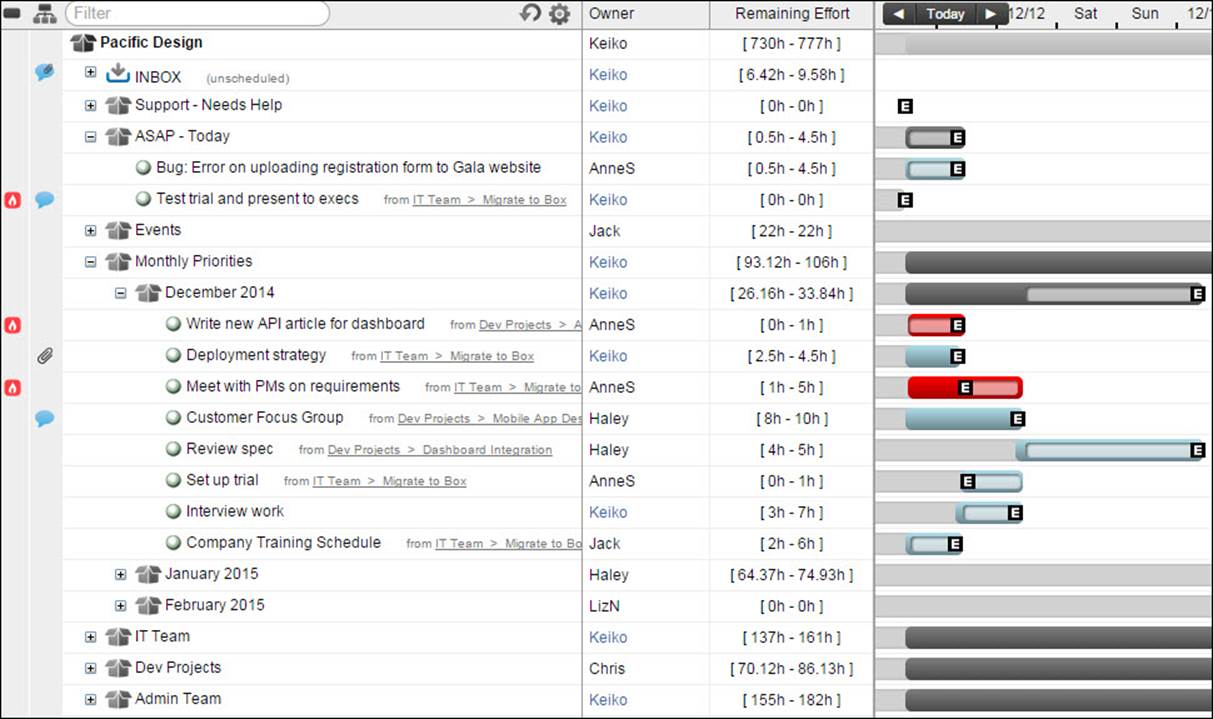The project management industry seems to be evolving at a faster rate each year in both methodologies and technologies. The economy and other market forces continue to influence how businesses manage their projects. To prepare for what’s ahead, here are seven project management industry trends for 2015.
More remote project teams
Online project management software and other cloud-based platforms help remote teams successfully tackle projects while having people located around the country or the globe. These tools provide one central location for project scheduling, information, communications, and collaboration.
Typically, remote project teams take the form of virtual teams of employees and contractors. However, I’d also include outsourcing and satellite offices as part of the “remote” definition.
The project manager who strolls down a row of cubicles to speak with the team is going to become increasingly rare in the next few years.
More contractors and independent consultants
The trend of more contractors and independent consultants on project teams (both onsite and remote) is going to increase in 2015.
There are organizations that embrace contractors and their contributions, with project managers who involve contractors as equals with the on-staff team. (I’ve contracted with some myself, I know such organizations are out there). In some companies, there are contractual stipulations limiting how employees interact with contractors.
If managed poorly, this inevitable trend could bring more challenges than benefits including poor onboarding of contractors; collaboration and communications glitches, and questions over intellectual property rights.
Nevertheless, I see this trend as one that can be ultimately positive for businesses because it injects new, innovative blood and specialized skills into a project team.
Project management software APIs become more important
In 2015, I expect that project management APIs (Application Programming Interfaces) will increasingly become a requirement among prospective PM software purchasers.
Project management needs to begin with the sales cycle, not at the “project kick-off meeting” in order for businesses to truly compete. Project management and customer relationship management (CRM) platform integration can bridge the chasm between sales and development/engineering by exchanging data between these two key business systems. Even if sales and development are enemies in the wild, an API can provide transparency between the two systems.

More cloud, less desktop
2015 should see desktop project management software cede even more market share as more project teams move more task management, project scheduling, and other project tracking into the cloud.
This trend will be increasingly driven by executive stakeholders and management who want their own tailored views into project scheduling and performance data. There’s also what I call the “team as the project manager.” This is where the project manager retains a strategic leadership role, while team members manage their own smaller projects and input data into the project management tool. All this information would be available to the project managers and higher-ups at all times.
More Agile, less Waterfall
2015 is going to bring even more Agile project management practices into small and large businesses. Agile systems have gained a lot of ground this year. Even some United States federal government agencies, a long-time bastion of the Waterfall methodology, are moving some projects over to Agile. Waterfall project management might be something we tell our children about in the future.
More mobile project management apps
Mobile apps are increasingly gaining more parity with browser-based applications. Mobile First, Choose Your Own Device (CYOD), and Bring Your Own Device (BYOD) are going to feed further demand for mobile access to cloud solutions in 2015.
Project managers working with teams that span multiple time zones get anywhere/anytime access to project scheduling and related information for the projects under their charge. Team members get the anytime/anywhere access while enjoying a user experience that shames the old Gantt chart that their Dads probably used to track information on projects of yesteryear.
Big data analytics as a project management tool
Big data has been a trend across multiple industries in 2014, and you can expect it to play an even bigger role in cloud-based software for executive management. Cloud-based project management platforms can churn up a lot of important data. The inclusion of data analytics enables project managers and executive stakeholders to wring out even more project information for use in actionable business decisions.
What trends do you see coming down the road? Tell us about one in Comments.







